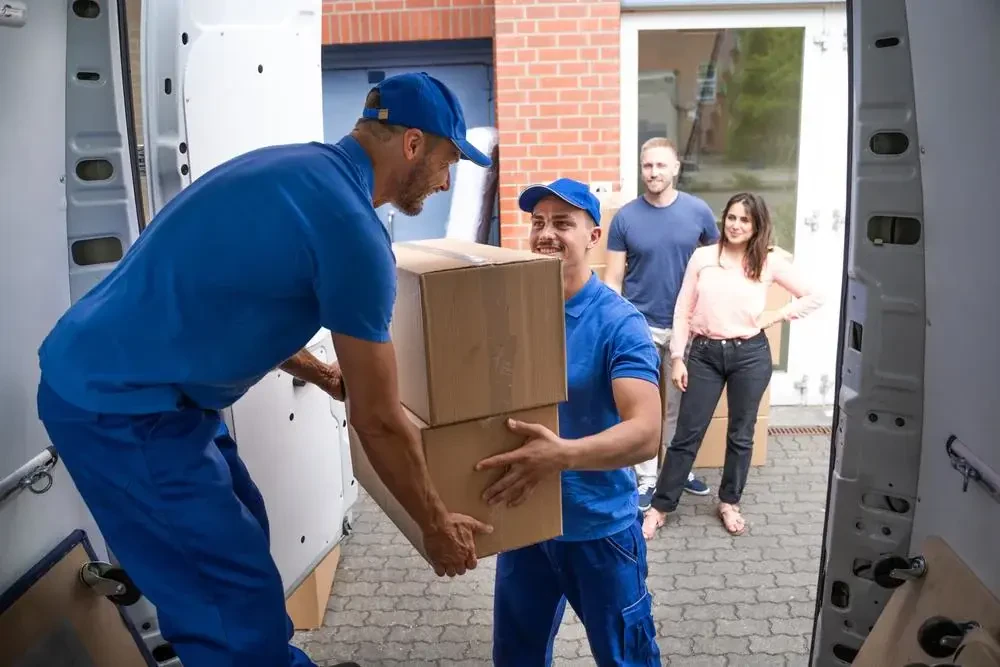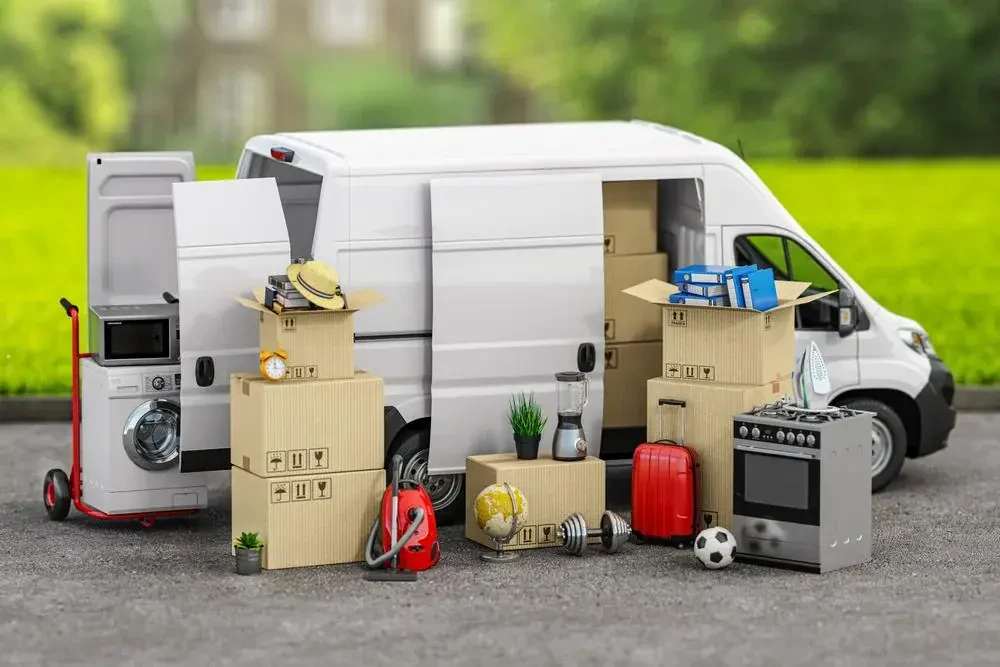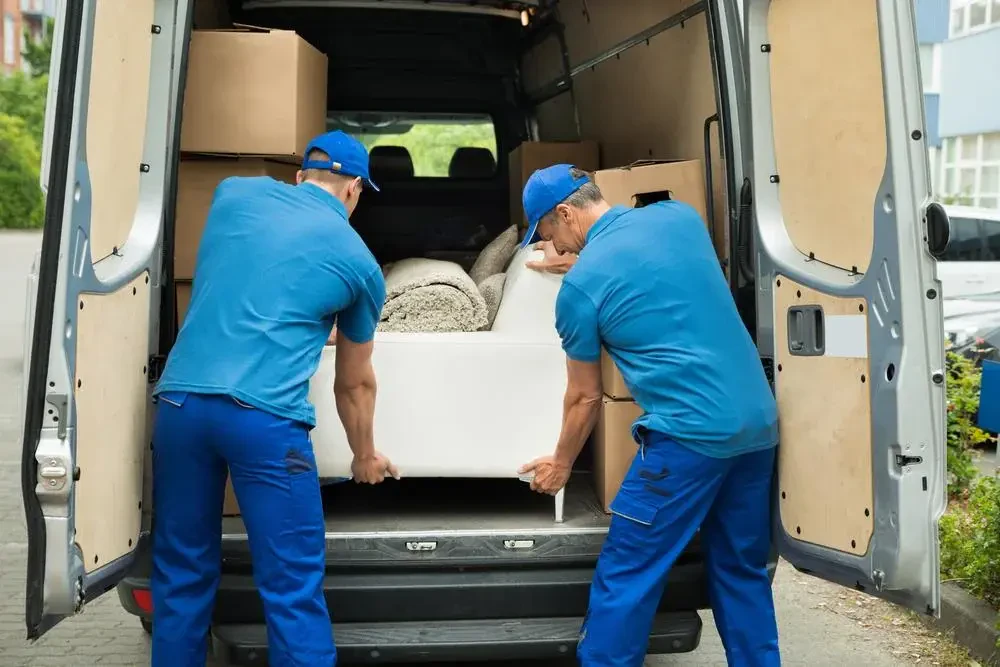Published by Chris Townsend
Last updated Jul, 20 2025

The Federal Motor Carrier Safety Administration (FMCSA) has amended its rules regarding the shipment of household goods. So what does that mean for shipping couriers and those placing orders on the movement of their household goods?
This article will review changes in the FMCSA's Household Goods Transportation Regulations.
We will also look at how these changes may affect your business and how you ship within the US, and if you're a consumer, what that means to look out for before hiring a service.

What Are the New Rules?
The new FMCSA rules are designed to protect consumers from unsafe shipments. These new rules require shippers to provide a certificate of insurance or proof of financial responsibility before transporting household goods with motor carriers.
These new rules apply to all carriers who move household goods intrastate and interstate, including trucking companies, railroads, water carriers, and air freight carriers.
So if you're an individual shipper or carrier, you won't be impacted by the latest changes to the rules.
However, if you have a contract with a company that moves household goods, you may need to comply with the new requirements.
How will this affect you?
If you're an interstate carrier, you must now have proof of liability coverage and cargo insurance.
In addition, you must be able to prove that you meet the minimum financial requirements set forth by the Department of Transportation.
You shouldn't worry about fulfilling these requirements if you're a local carrier. However, if you want to continue operating as a regional carrier, you should ensure adequate insurance coverage.
And if you're a potential consumer, now is the best time to look for legitimate shipping couriers and ensure they have official websites and comply with these new regulations.
What does this mean for your business?
You may think it doesn't matter whether you operate as a local or interstate carrier because you already carry enough insurance to cover your shipments.
But there is one difference between the two types of carriers: interstate carriers must maintain at least $300,000 in liability insurance if they weigh less than 10,000 pounds and at least $750,000 if they weigh 10,001 pounds and more.
In contrast, local carriers need to maintain significantly less in the US.
This means that if you're transporting household goods across state lines, you could find a huge gap in your insurance coverage. You could face fines or penalties if you don't have sufficient insurance.
You may consider switching to an interstate carrier to avoid gaps in your insurance coverage.
So what should I do now?
As stated, these new rules require shippers to provide proof of insurance coverage when they ship household goods by a motor carrier. This is a requirement under49 CFR Part 390.
If you have not considered getting proof from your insurance provider and have incomplete documents, now is the best time to get those shipping documents in order.
This can help your business, especially because there are actual charges for not providing these details.
In addition, your entire shipment could be sent back, meaning you could lose customers for not being able to complete the job.

Timeline: From 2018 to Now
In April 2018, FMCSA issued final rule amendments requiring motor carriers transporting household goods to comply with certain requirements under49 CFR Part 376.
These amendments include recordkeeping, driver training, vehicle inspections, and other safety measures.
Truckers who transport household goods will now be required to meet specific standards.
And these standards include having a valid commercial driver's license, maintaining a clean driving logbook, completing annual service hours, and taking mandatory drug tests.
In addition, this regulation requires carriers transporting household goods to comply with certain safety standards.
For example, carriers must ensure their vehicles meet minimum FMCSA standards, such as having proper brakes and tires. You should review these conditions if you operate as a driver for a company that transports household goods.
Present rules
Presently, household goods carriers must comply with all FMCSA rules and regulations. As mentioned in 2018, drivers must maintain records of driven hours, log books, and training requirements.
Additionally, household goods carriers must ensure that drivers are properly qualified and trained before operating commercial vehicles.
Moving companies must provide specific information about themselves before transporting goods across state lines, including contact information, proof of liability insurance, and a copy of their current trucker and shipping license.
These requirements apply to interstate moves within the United States.
Consumers should always check with the National Association of Consumer Advocates or another consumer protection agency before hiring moving services.
Furthermore, you can find out how many complaints have been filed against a particular mover by searching through websites like ours for more information.

Movement and Storage of Household Goods (HHG)
In some cases, you may have your items moved and funded by the government. Or you could pay for the move and have the cost reimbursed by the authorities.
For example, if you work in a government organization and are being asked to relocate, you can contact your transportation office (TO), which will issue a Government Bill of Lading.
This authorizes the government to assume the responsibility of moving and storing the employee's household goods. The information they need is similar to what the FMCSA rules also require. This document includes the following information:
- Name of the recipient
- Date of delivery
- Address where the household goods are delivered
- Type of transportation used
- Number of items being moved
- Total weight of the shipment
- Cost per item
- The total cost of the shipment
When shipping this way, the government pays all costs associated with the shipment. However, when shipping via the actual expense (AE), the employee pays all the costs related to shipment and storage.
The FMCSA's new regulations do not affect these rules but always check with your employer if you work for an official government organization.
Impact on household goods drivers
If you move your personal belongings, you may be able to deduct some of the expenses from your taxes. However, if you hire movers to do this work, they will not allow you to claim deductions.
In addition to the FMCSA rules, the IRS requires you to keep track of your travel expenses. Especially as household transport goods drivers themselves.
For example, if you're in charge of interstate transportation, it's a good idea to use a computerized accounting system. It helps to know what expenses are deductible and what bills to track on your journey to deliver these household goods to their destination.
Claiming deductions
You can still claim some deductions if you don't use a computerized accounting program. However, you must keep records of your out-of-pocket expenditures and include them with your return.
In addition, keep copies of canceled checks, credit card statements, and invoices, or face additional charges when you fill in tax returns.
Drivers can deduct certain "ordinary and necessary" business expenses. These include advertising, postage, telephone calls, and professional dues.
You can also remove the cost of gifts given to consumers, suppliers, and others. So if you work for yourself and not a larger shipping company, keep these expenses in mind.

New Rules Aim to Streamline Household Goods Moving Regulations
The proposed changes include requiring companies to provide proof of insurance and licensing. In addition, the new rule would require that drivers receive at least $25 an hour for their services.
This is just one of the few updates the FMCSA has made to improve safety and efficiency. For example, in the past, drivers were required to pay for their own fuel, but now they can purchase fuel cards through their employer.
There are also new vehicle inspections and maintenance requirements, including tire tread depth and inspection stickers.
Other ways to streamline how household goods are being transported include the following:
- Requiring drivers to have a valid license
- Ensuring drivers are properly trained
- Making sure drivers follow federal laws and regulations
- Improving recordkeeping by carriers
- Increasing penalties for violations
If you're a consumer, you should check out the rules and requirements before hiring a mover.
Sometimes individual shippers may be more cost-effective, but if they don't have secure websites or follow the new federal regulations, it could be better to go for a larger company.
You can also ask your driver and organization about their experience, how much the move will cost, and know the exact journey your goods will take to reach their destination.

Final Thoughts
FMCSA has released new rules regarding the shipment of household goods for items like furniture, mattresses, appliances, and electronics across the US.
The rules require carriers to provide proof that the items are guaranteed against loss or damage during transit. They also mandate that individual shippers work with companies to keep detailed logs of each trip.
The new rules apply to interstate household shipments. Carriers transporting household goods between states must comply with the same requirements as those moving within a state.
Discover more about these FMCSA regulations and our services that comply with these rules.
moving tariff for fmcsa fmcsa household goods program fmcsa household goods


